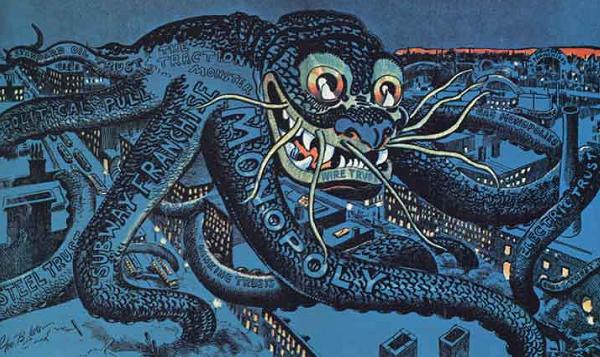
Despite all the fake news, pornography, and dark web activity we've come to fear, the advantages of interconnectedness are too numerous to mention here.
We'll stop the ode and revert, instead, to a jeremiad of sorts regarding the unintended consequences of its success.
As the Internet opens the door for commerce and open information in countries across the world, U.S. dominance in just about everything -- search engine placement, discussion forums, advertising, you name it -- is now challenged. It's no surprise that Internet giants such as Google or Facebook would want to tap into Chinese wealth, with more billionaires living in Asia than in any place on earth. The problem is that China doesn't quite value freedom the way we Americans do, and will not allow certain content to be used unless it complies.
It's no secret that Google, for example, has been developing a search engine for Chinese users that complies with the Maoist regime's strict censorship codes. It would stand to reason that the company as a whole would begin to alter its core values and approaches toward free speech to suit its broadened international audience.
Enter: an intercepted memo that details what goes into becoming a "Good Censor" of Internet content, justifying a shift from a First Amendment-centered approach that pioneered the Internet to something more "European." Here's one chart from the leaked internal memo:
 Before you put on your tri-cornered hat and start shouting the British are coming, we'll let Breitbart explain what this memo could mean, as they originally had the scoop (though they have been mum on how the obtained a copy). If you're short on time, read below for a snippet of why this memo might be concerning:
Before you put on your tri-cornered hat and start shouting the British are coming, we'll let Breitbart explain what this memo could mean, as they originally had the scoop (though they have been mum on how the obtained a copy). If you're short on time, read below for a snippet of why this memo might be concerning:"The first approach is described as a product of the 'American tradition' which “prioritizes free speech for democracy, not civility.'
"The second is described as a product of the 'European tradition,' which 'favors dignity over liberty and civility over freedom.' The briefing claims that all tech platforms are now moving toward the European tradition."The beauty of the Internet is that its decentralized, capitalist approach to sharing information, despite attempts to throttle that by government "neutrality" efforts. With that, it's the right of a company's leadership to be ignoramuses favoring Communist speech policies if they so choose. And it's the right of the users to click elsewhere or even throw our tea into the Boston Harbor. That's how we do things, whether or not the good folks of Mountain View, Calif., agree.
The danger lies, of course, in how much of our personal information, commerce, and even our cultural goings-on we give to companies like Google: at what point will they act as a quasi-government penalizing speech they find to be abhorrent? We may find it hard to untangle ourselves from their many tentacles.
The Tracker predicts in the days to come, based on this memo, there will be a renewed effort by Facebook, Twitter and Google to "crack down" on fringe accounts which promote views that their censors find too radical or unresearched. Alex Jones being censored by Facebook is the tip of the iceberg, here. The worst may be yet to come. However, this also creates unparalleled new opportunities to create liberty-friendly alternatives to the giants whose power has finally corrupted them.
In the meantime, we're happy to be using a Google-owned platform (Blogger) to write this critique. And Alex Jones is still free to complain about censorship on Facebook.
No comments:
Post a Comment
We strongly support the First Amendment. But we ask that you keep it friendly and PG.